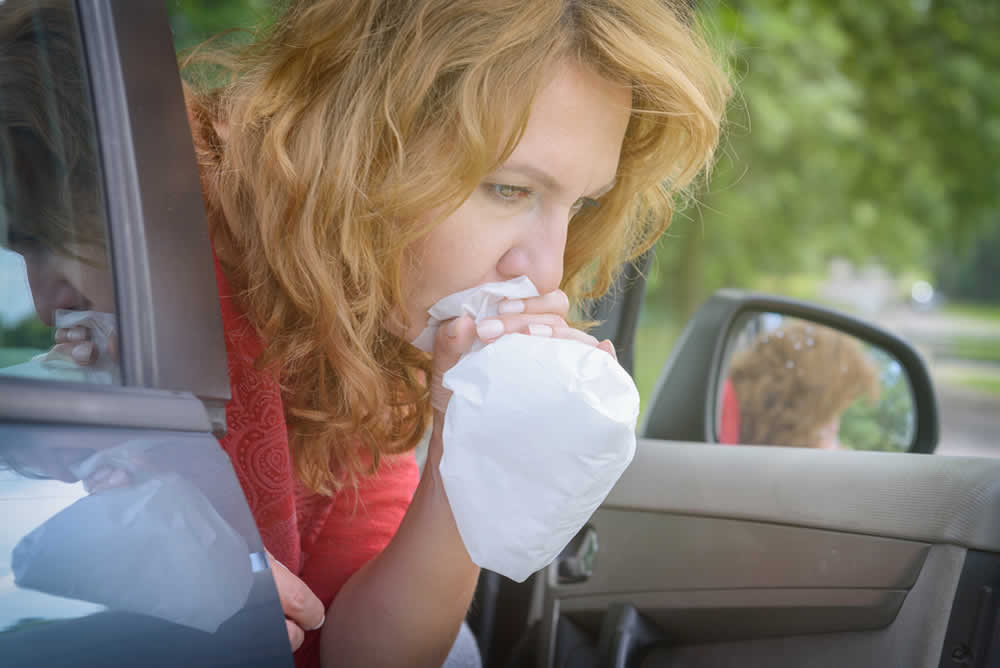
You’re probably only too familiar with the scene: the caravan is packed, hitched up, and you’ve barely travelled to the end of the road before one of the kids cries out from the back seat that they’re going to be sick. Or, in some cases, maybe your front seat passenger, an adult, says they feel nauseous.
Travel sickness, car sickness, or what some experts call simply motion sickness is far more common than you might think – and not something suffered only by young children. A story in the Express newspaper on the 17th of June 2018, for example, revealed that the nausea associated with travel sickness is experienced by around two-thirds of the population, with one-third of those affected actually throwing up.
Apart from the queasiness and vomiting, sufferers may also exhibit some or all of the following symptoms:
- dizziness;
- cold sweats;
- pale skin; and
- a more than usually watering mouth.
Causes
The NHS advises that the causes of motion sickness arise from the confusing messages received by your brain when the balance organs, in your inner ear, conflict with the movements that your eyes are seeing – the confused messages simply make you feel unwell.
Mitigating the effects
There are ways of mitigating the effects of motion sickness and these include:
- reducing the amount of motion you feel by sitting in a front seat of the car – though this is clearly inadvisable for young children;
- keeping your eyes on a fixed point ahead – such as the horizon;
- increasing the amount of fresh air you are breathing by opening a window;
- with your eyes closed, taking slow breaths and concentrate on your breathing;
- breaking the journey for a walk or a drink of water in the fresh air;
- avoiding alcohol or a heavy meal before getting into the car; and
- distracting children by singing, listening to music or chatting to take their minds off how they are feeling.
Remedies
There are a number of homoeopathic remedies you may try, but the science behind them is rather inconclusive, even though they seem to work for some people if not others. These include:
- acupressure wristbands – these have a small knob or button on the inside which presses on the Pericardium 6 or Nei Guan point in your wrist, and you may try the sensation for yourself by taking your three middle fingers and pressing them down on the inside of your wrist, when your index finger will then locate the P6 spot;
- root ginger – which you can chew on or eat in a biscuit, drink in an infusion of tea or take as a tablet or capsule, suggests Saga magazine. Again, the science behind using this – a centuries-old remedy for settling upset stomachs – is inconclusive, but seems to work for many people;
- drugs – there are any number of over-the-counter remedies found in your local chemists and most of them are based on the groups of medicines called antihistamines or hyoscines.
Test runs
While car or motion sickness is not a serious illness, it is really horrible for sufferers – so much so that they may try and avoid long car or boat journeys.
So, before any trips, look at different remedies available and try them out in the weeks leading up to the journey – do some “test” runs.
Finally, before you actually embark on your journey, make sure you build in time for plenty of short stops; that you pack sweets for the sufferers to suck on and lots of bottled water; and, that have a supply of plastic bags ready (the latter for “just in case”).

